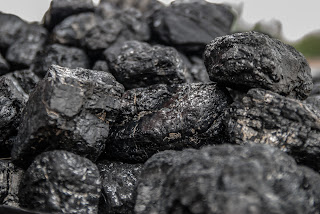The charcoal makers in northern Uganda fled into the bush to avoid capture by local officials after a new law banned the commercial production of charcoal. Local activists formed vigilante groups in districts such as Gulu, where a former lawmaker led an attack on a truck that was dispossessed of 380 bags of charcoal. President Yoweri Museveni issued an executive order banning the commercial production of charcoal in northern Uganda, disrupting a national trade that cultural sensibilities have long influenced. The ban follows a climate change law enacted in 2021 that empowers local authorities nationwide to regulate activities deemed harmful to the environment. Trees suck in planet-warming carbon dioxide from the air, but burning charcoal emits the heat-trapping gas instead.
Days after Museveni's order, a team of Associated Press journalists walked into a charcoal-burning enclave in a remote part of Gulu, 335 kilometres (208 miles) from the Ugandan capital of Kampala. A local official, Patiko Sub-County Chairman Patrick Komakech, gave chase when he heard fleeing footsteps. A small patch of bamboo opened to an almost bare patch where trees were cut, and grey smoke rose from one pile being processed. The charcoal makers slept in little tarp tents draped in dry leaves. One charcoal maker asserted that charcoal from northern Uganda was likely used even in the State House, and others charged that they were cutting the trees with the collaboration of landlords who sell charcoal-making rights by the acre.
The industry can be lucrative for landowners and investors, as a bag of charcoal fetches about $14, but the price rises further as the goods approach Kampala. An acre of property with plenty of trees in Gulu, Uganda, can be sold for up to $150. Investors then deploy men armed with power saws and machetes, working over specific places and leaving when they have cut down all the trees they were sold. District councils in the region raise revenue from licensing and taxes, and corrupt members of the armed services have been protecting charcoal truckers. Otto, the former lawmaker now leading vigilantes against charcoal makers, has helped cause the impounding of multiple trucks in recent weeks, including two recently seized ones parked outside a police station.
He plans to serve hundreds of local officials with letters of intent to sue for any lapses in protecting the environment. Otto aims to make the rest of Uganda "lose appetite" for charcoal from his region. The ban on commercial production in northern Uganda is almost certainly bound to push up the retail price of charcoal, and Otto and others were concerned that charcoal dealers would avoid authorities by ferrying charcoal bags in small numbers to towns where the merchandise could be stealthily loaded into trucks.



